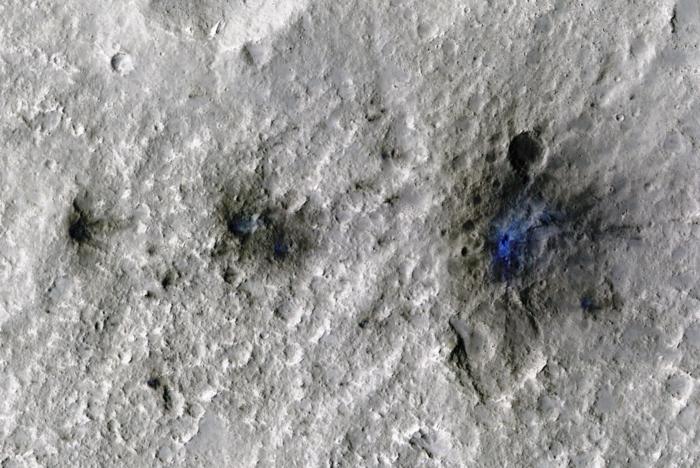Mars is being constantly smashed by meteorites, study finds
Objects smash into Mars almost daily – leaving behind large craters, researchers find

Mars is being constantly hit by meteorites, according to new data.
The red planet is hit by an impact almost every day, according to new research. That is up to 10 times more meteorites as had been predicted.
The new research used data taken from Nasa’s InSight mission, which was able to use ‘marsquakes’ – or seismic activity in the ground – to better understand the planet.
It found that Mars experiences around 280 to 360 meteorite impacts every year. They leave behind craters more than eight metres across, and shake the surface of the planet.
The research could help us understand how Mars – and other planets – have changed throughout time. It might also suggest that our existing understanding is wrong, since it relies so heavily on impact craters that might be much more common than we had realised.
“By using seismic data to better understand how often meteorites hit Mars and how these impacts change its surface, we can start piecing together a timeline of the red planet’s geological history and evolution,” said Natalia Wojcicka from Imperial College London, one of the study’s authors.
“You could think of it as a sort of ‘cosmic clock’ to help us date Martian surfaces, and maybe, further down the line, other planets in the Solar System.”
It might also help understand the risk meteorites pose to Earth. And the findings from Mars could also inform safety work on future missions that send robots, or even humans, to the red planet.
“Planetary impacts are happening all across the solar system all the time,” said Ingrid Daubar, from Brown University.”We’re interested in studying that on Mars because we can then compare and contrast what’s happening on Mars to what’s happening on the Earth.
“This is important for understanding our solar system, what’s in it and what the population of impacting bodies in our solar system looks like — both as hazards to the Earth and also historically to other planets.”
The new study, ‘A new estimate of the impact rate on Mars from Very High Frequency marsquake statistics’, is published in Nature Astronomy.
Join our commenting forum
Join thought-provoking conversations, follow other Independent readers and see their replies
Comments
Bookmark popover
Removed from bookmarks